Why Grass Fed Beef Is Better for You
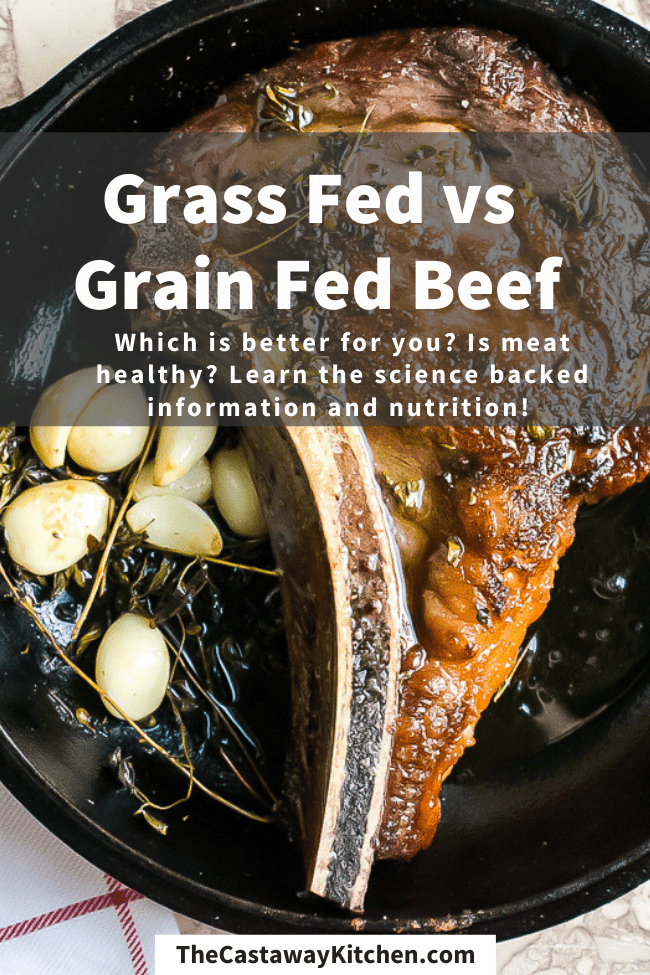
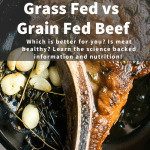
Is Grass-Fed Beef Better Than Grain-Fed? And How Do I Know For Sure!?
There are a lot of labels thrown out there, and a lot of marketing behind it. Words like humanely raised, grass-fed, pastured, organic. So what's different? Well, these days the USDA makes it pretty easy to label meat grass-fed. If the cows were pastured for even a few months of their life, they are considered grass-fed, even if they spent the majority of the time in a pen, eating grains.
Organic just means that the food they were fed was organic, and here is the kicker, you can't approve grass (miles and miles of pasture) organic or not. So often, grass-fed and grass-finished beef it NOT organic, well not labeled that way, because there is no way to test all of the grass. Oddly enough, if you're searching for cows that were never fed grains, having an organic label, might be something to avoid. Instead look for grass-fed, grass-finished. Even better, know your farmer!
Browse my beef recipes on the blog here.
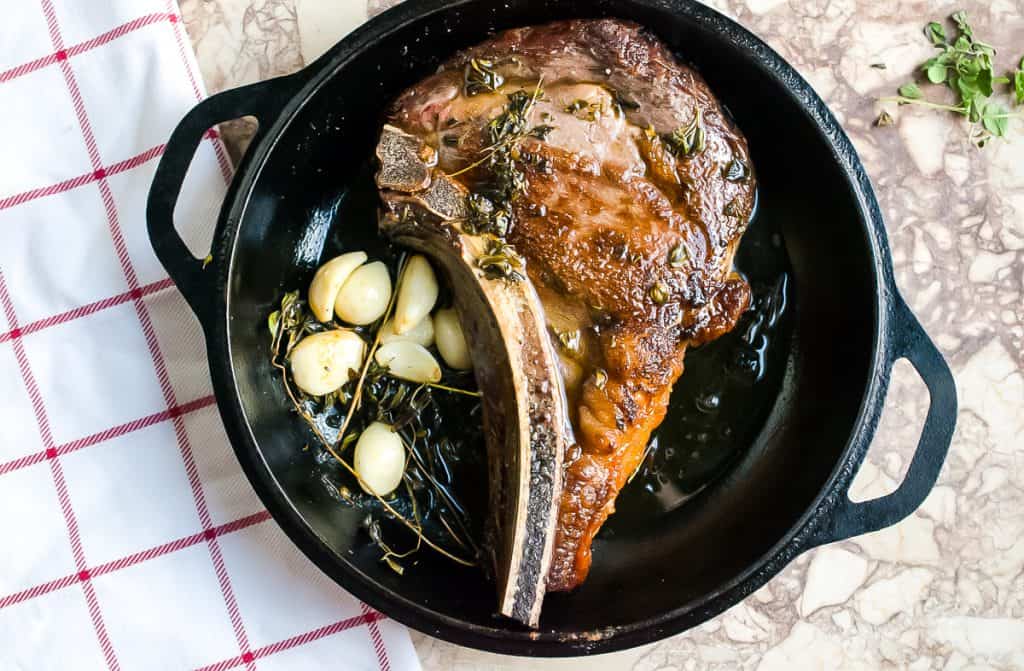
So Why Is Grass-Fed Better Better For You?
Well, cows that eat biologically appropriate foods (grass) are healthier! Their beef is leaner because they are more active and the fat they do have is heart-healthy fat! Full of CLA (conjugated linoleic acid) and omega 3 fatty acids which help fight inflammation and help protect against oxidative stress. Healthy, grass-fed cows that are raised free of antibiotics, steroids and hormones are better for you, because when you eat meat that has been medicated, you eat all of that too! I get my grass fed, grass finished beef here.
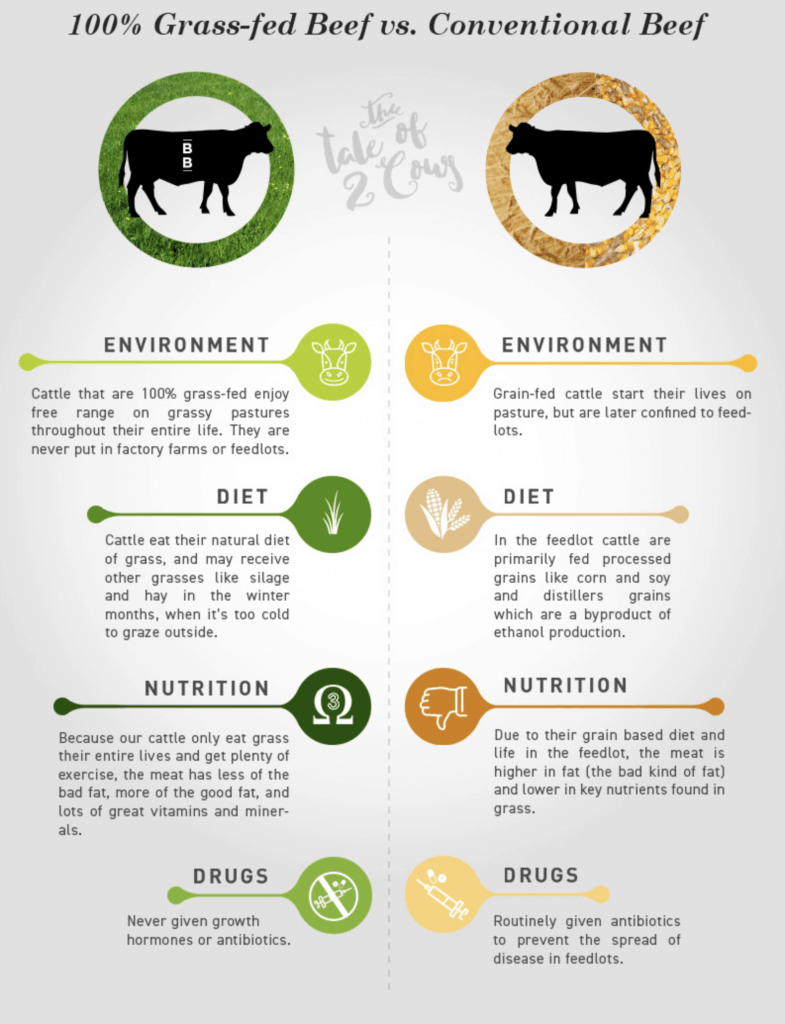
Nutritional Benefits of Grass Fed Beef
- Red meat is a great source of bioavailable (meaning high absorption rate): B12, niacin, B6, iron, zinc, and phosphorus
- Good source of omega 3 fatty acids (anti-inflammatory fats), riboflavin, pantothenic acid, selenium, and Vitamin D
- Contains 28-36 grams of protein per 100g of cooked meat
- Because the water content decreases during cooking the nutrient contents become more concentrated
- Highly digestible, around 94% compared to with digestibility in beans of 78%
- Provides essential amino acids (building blocks fo the body): lysine, threonine, methionine, phenylalanine, tryptophan, leucine, isoleucine, valine, glutamine.
- 48% saturated fats (great for hormones)
- 11-29% PUFA (pasture-raised has higher omega3 ratio)
- Good source of choline, as a precursor of a number of compounds, including neurotransmitters and membrane phospholipids.
- CLA (conjugated linoleic acid): has antioxidant and immunomodulatory properties.
- Organ meats are particularly rich in B12, zinc, iron, folate, VitA, niacin
Source of information, and here.
Yes, many of these nutrients can be found in other foods, but not in such easily digestible, absorbable and USEFUL forms. I think plants have important micronutrients like polyphenols, fiber, and vitamin C and together animal protein and vegetables create a healthy diet. But honestly, if I had to pick one macronutrient to live on, it would be protein.
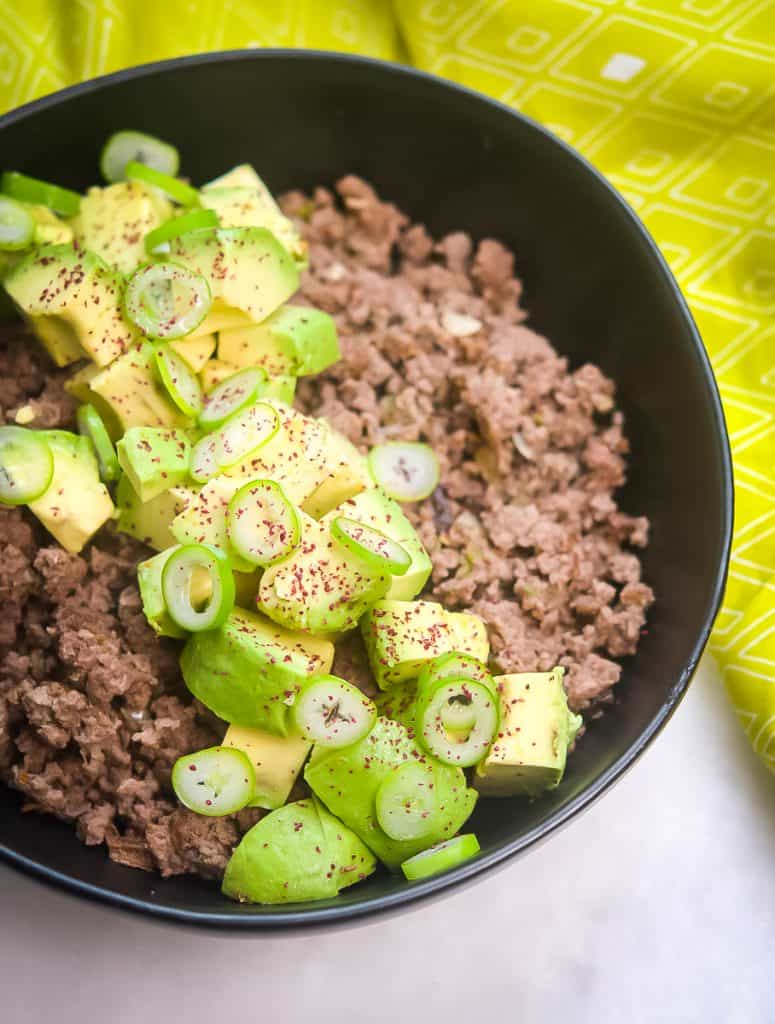
We are meat eaters! That's why humans have big brains and were able to evolve the way we did because we ate Omega3 rich animal fat.
Here is an expert from Meat in the human diet: An anthropological perspective by Niel Mann:
"Humans fit neither category, but are truly omnivores, falling between the largely frugivorous make‐up of such anthropoid relatives as the chimpanzee and the adaptations of the true carnivores. A sacculated stomach or well‐developed caecum and colon are associated with plant‐based diets. The lower the plant quality (or the higher the fiber content), the more pronounced are these features. The ruminant animals (foregut folivores) show the greatest volume in the stomach region. Non‐ruminant herbivores (midgut folivores), such as the horse, have the greatest development in the caecum and colon. Measures of the relationship between gastrointestinal length or surface area, and body length or surface area give a good relative comparison of carnivore versus herbivore characteristics. ….The human gut with its simple stomach, relatively elongated small intestine, and reduced caecum and colon, does not fit any one group but lies between the frugivore and faunivore groups, suggestive of reliance on a high‐quality diet in which meat is a predominant component."
Read the full study here.
SOURCING MATTERS!
Do the best you can, when you can. I know many areas don't offer quaity meat. Luckily, you can also get meat delivered to your door by several companies, I use Butcher Box. If it's not an option for you, check out Thrive Market and US Wellness Meats.
I know that quality meats can seem like a luxury and it can be confusing as to where to spend your money, my motto is always: DO THE BEST YOU CAN. If Walmart or Costco grass-fed ground beef or organic ground beef is what you can get, rock it. I'm fortunate that I can buy Butcher Box beef for my family, their cows are grass-fed, grass-finished, free-range on Australian pastures. But that wasn't always the case, I definitely started my healing journey shopping at the Military Commissary on base, getting what I could afford! Do the best you can.
There is a lot of information coming out against beef, there is a lot of money and power pushing plant-based eating and it's confusing as hell. There will be scare tactics. There will be bunk science. Always check sources, and follow the money. This is a great new documentary that came out. It's called FAT.
I find it interesting that cow farts are being blamed for enviromental issues when humans create more emmisions than grazing animals ever will. Even farming grains and other foods has a negative impact on the enviroment. Just look at these charts from National Geographic, the have them for all over the world, meat doesn't constitute the majority of anyone's diet!
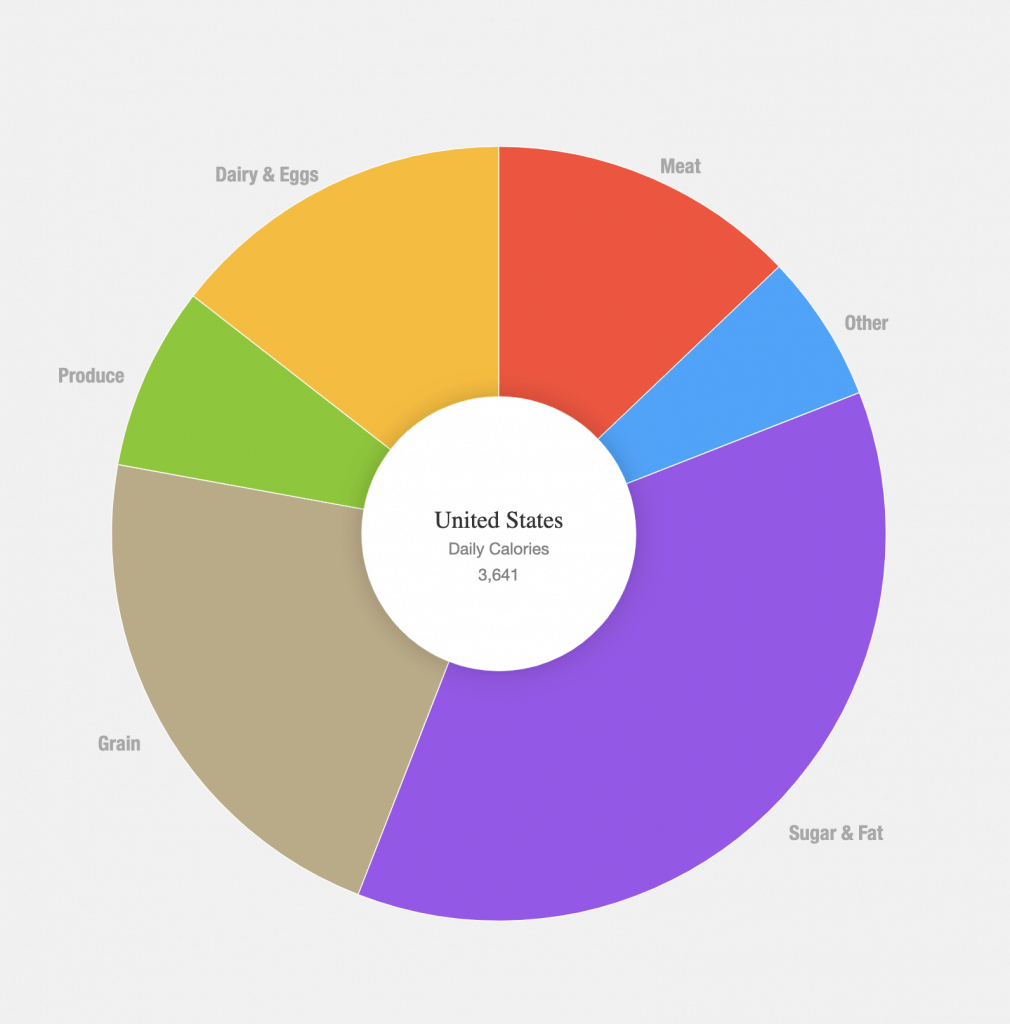
Why Grazing Animals will Save the Planet!
The United States has prized top soil. It's what made the midwest perfect to grow crops, and we got that amazing topsoil from the buffalo that used to graze the land. However, after decades of growing soy, corn and wheat on that land, the soil is depleted. Scientists say that there are only 60 years left of harvest for that soil before it's completely dead. Many farmers are already feeling it. After years of going broke, trying GMO's and all for not, their farms are dying. Some, seek help from non-profits like The Savory Institute that help them return to regenerative agriculture. Grazing animals are part of that!
When animals are allowed to graze on grasslands and are properly rotated, it helps the grass grow deep, deep, deep roots that nourish the soil (over 6 feet deep). These deep roots aerate the soil and keep it alive with nutrients, it's a circle of life. The animal waste fertilizes the soil, the bugs that get stepped on, and the delicate ecosystem that we have abused!
To learn more about how meat is important for sustainable farming, check out the tireless work of Diana Rogers, RD, NTP and the film she is working on to spread this message.
Browse my beef recipes on the blog here.

Source: https://thecastawaykitchen.com/why-is-grass-fed-beef-better/
0 Response to "Why Grass Fed Beef Is Better for You"
Post a Comment